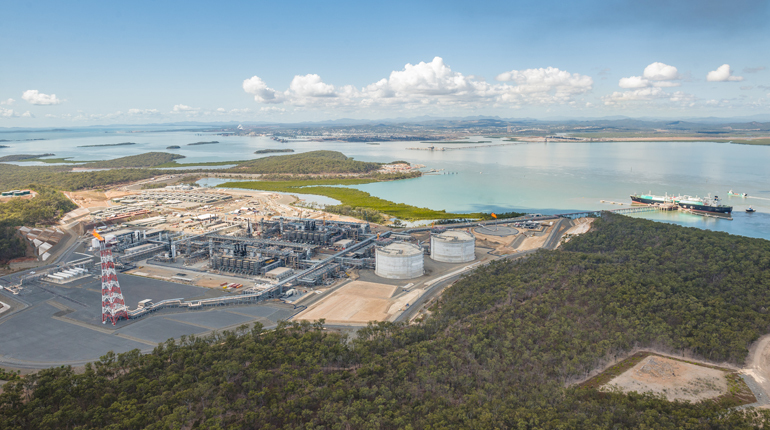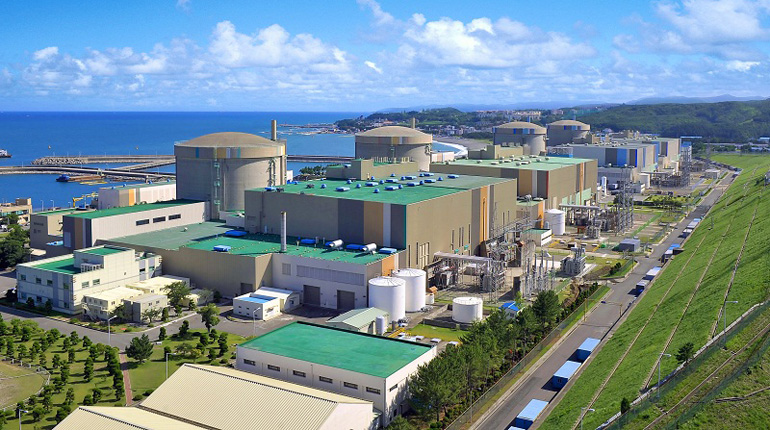 Santos’s Gladstone LNG plant. Sellers of the fuel may have to become more flexible to stay competitive. (Santos)
Santos’s Gladstone LNG plant. Sellers of the fuel may have to become more flexible to stay competitive. (Santos)
Floundering commodity prices and an oversupply of gas in the Asia Pacific region are leading LNG customers to demand more flexibility from suppliers – a move that has ramifications for the way gas is contracted and for financing large LNG projects, experts have said.
Asked whether oil indexation in LNG contracts is coming under pressure, Patrick Pouyanné, chief executive of French major Total, said it was unclear. But he advised buyers not to be too focused on the current market situation and to investigate a range of options when it comes to buying LNG.
"There are different areas of pricing LNG in the world. If I was a buyer I would try and have a mix of formulas and not to be too short term in focus," Pouyanné told Interfax Natural Gas Daily at the LNG18 conference in Perth, Australia this week. "I have a view that oil will come back again and then those same buyers will ask us again for oil-indexed contracts," he added.
Total is developing the Ichthys LNG project in northern Australia with Japan’s Inpex, and the two companies also hope to work on Indonesia’s Abadi LNG plant. Elsewhere in Australia, Total has an interest in the now-operational Gladstone LNG plant in Queensland with Santos, Petronas and Kogas.
Total is also involved in Russia’s proposed Yamal LNG project with Novatek and China National Petroleum Corp. Pouyanné said Yamal offers huge advantages because of its "very low cost" and large onshore gas reserves that will ultimately be supplied to Chinese markets.
The overriding theme of LNG18 is the need for the global gas industry to become more adaptable, innovative and cost efficient to meet the challenges of a market that is expected to see demand rebound in the next decade, but which will also witness the emergence of new, smaller types of buyers.
Many of the LNG18 speakers recognise the need for buyers and sellers to become more accommodating in their contract terms, although what form this will take depends on the individual situation.
Wan Zulkiflee Wan Ariffin, president and chief executive of Malaysia’s Petronas, said LNG buyers needed to understand the returns of LNG sellers had to match their costs. "I challenge buyers not to be fixated on the slope of the S-curve but to develop the best position and overall package in terms of supply security and terms," he said.
In a paper published this week, the UK-based Oxford Institute for Energy Studies (OIES) said LNG will have to "shed its mantle of a premium fuel whose import price is linked to that of oil and ‘re-market’ itself as fuel which can contribute to a lower-carbon future".
This will require "a radical renaissance in marketing by upstream LNG producers and strenuous efforts in cost reduction through competition in the liquefaction equipment sector" to meet the needs of emerging buyers in China, India, Singapore, Thailand, Indonesia, Malaysia, Pakistan, Bangladesh and Vietnam, the OIES added.
Destination anywhere
"We’re talking about amending the framework, not breaking the contract or not taking the cargoes," OIES Professor Jonathan Stern told NGD.
"There are buyers, particularly in Japan, who are stuck with cargoes that they don’t really need and they’ve got to have some means of getting rid of these within the contractual framework […] In Asia the destination clauses have got to be relaxed and I think that sellers know that," he added.
Shigeharu Yajima, senior vice president of the oil and gas business and managing executive at Inpex, said he believed "there will continue to be a requirement for long-term contracts from the perspective of project financing", although he admitted it was necessary "to respond to the diverse needs of buyers".
With this in mind, the Japanese oil and gas developer "will strive to become ‘a partner of choice’ by improving the cost competitiveness of its product", Yajima said, adding that Inpex is focused on partnering with upstream and downstream players.
But Simon Redmond from Standard & Poor’s told delegates in his speech that, from a capital deployment perspective, there would be different payback terms for projects depending on the duration of their offtake contracts.
"Lenders want to know when they will get their money back," Redmond said, adding that long-term contracts provide certainty on volume offtake if not price.
Woodside Petroleum’s Chief Executive Peter Coleman told LNG18 delegates that Australian LNG developers must recognise the emergence of cheaper, international competition and act accordingly. US shale took the market by surprise and looks to be here to stay, he said, while other cheap developments are springing up in countries such as Canada and the east coast of Africa.
"It is a competitive world," Chevron Chief Executive John Watson noted.








Talk to us
Natural Gas Daily welcomes your comments. Email us at [email protected].